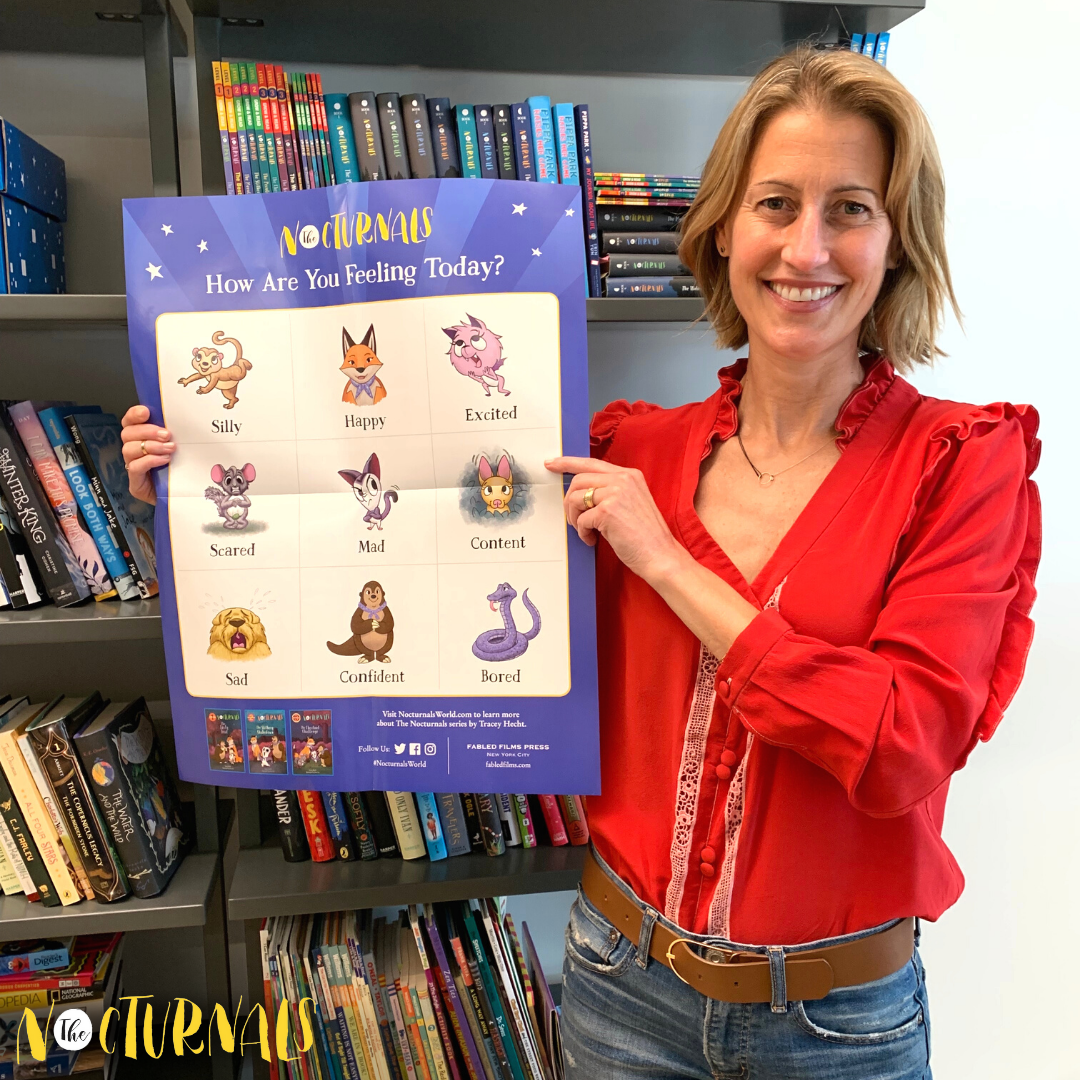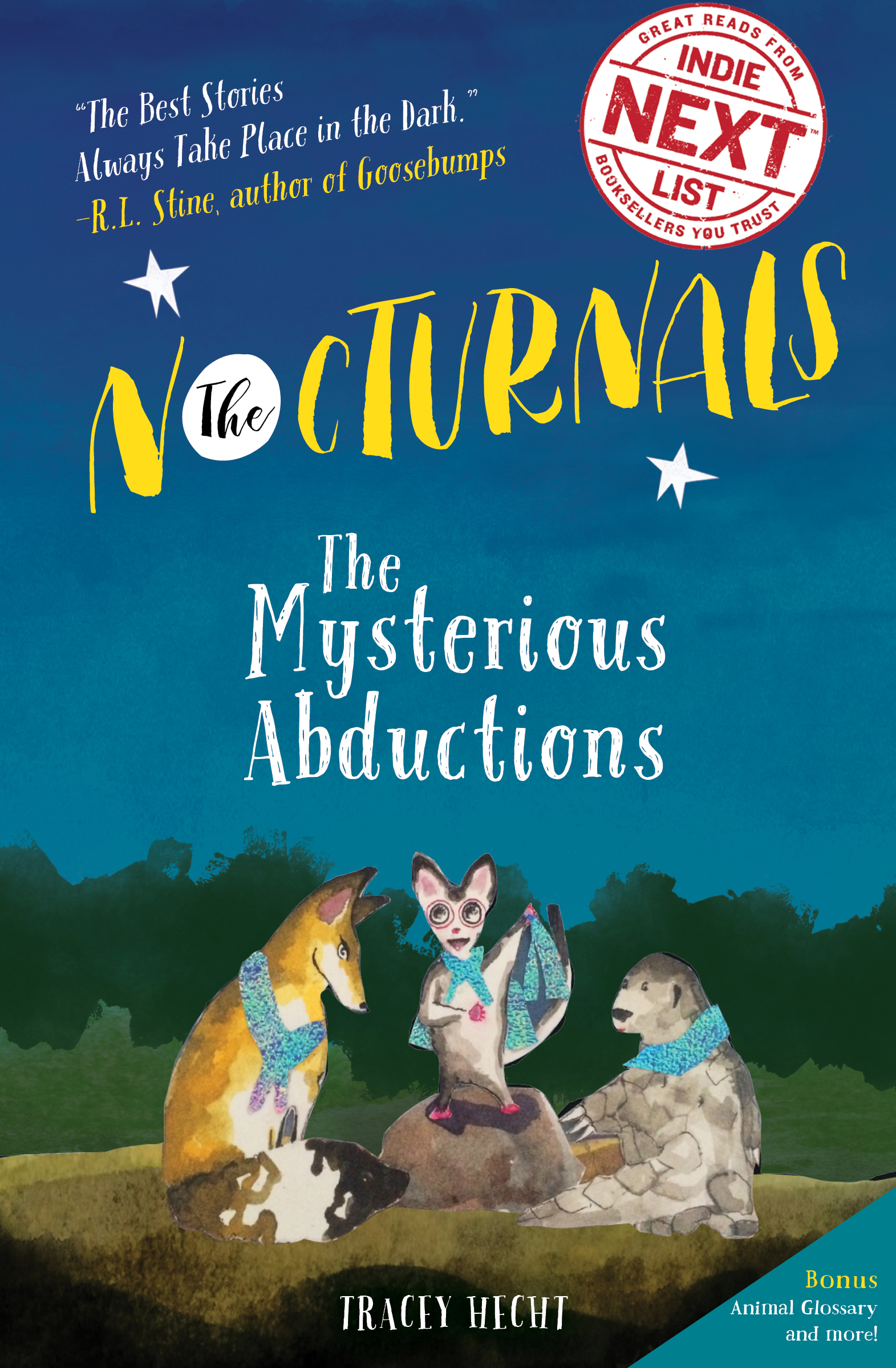How Are You Feeling Today?
by Tracey Hecht

I often start my virtual school and library visits with that simple question: How are you feeling today? Whether kids respond with happy, bored, excited, or even sad, the question invites a deeper conversation about their feelings and attention to their mental states. I then share stories from my early reader collection of books in which The Nocturnals characters, through actions and emotions of their own, model emotions that students often feel but find confusing or hard to express. Kids can relate to moments when Tobin the pangolin is nervous, when Bismark the sugar glider is loud and excited, or when Dawn the fox feels quiet and thoughtful.
Teachers, librarians, and booksellers experience this every day. The characters and stories that kids read about frame their own feelings and experiences in a way that eases them into personal reflection and conversation. Talking with kids about how characters experience and express emotions opens up conversations about how they feel and experience things in their own lives. Kids can enjoy reading about Walter the wombat while exploring what it means to cry and feel both happy and sad. Or they can read about Penny the possum and explore what it means to be empathetic.
In The Slithery Shakedown, the characters must consider the emotion of courage. What is courage? Is it standing up to a bully? Is it trying a new food? Is it adapting to changes in your home or school environment? Talking with kids about courage helps them find strength and empowerment in their efforts and helps them realize they have met and will continue to meet new challenges with strength and courage every day. It also helps them realize that often when we are afraid, we can still demonstrate courage.
The last year and a half has required all of us to be adaptable, to create new patterns, and to consider new approaches. Sometimes we have met those challenges with strength and a good attitude, but other times they have left us feeling frustrated or nostalgic for more comfortable patterns. But regardless, we have all demonstrated courage. The Nocturnals books and workshop provide an opportunity for kids to identify this and find empowerment in their behaviors and shared experiences.
Learn more about The Nocturnals SEL Program here.
To hear more from Tracey Hecht, follow her on Twitter!


